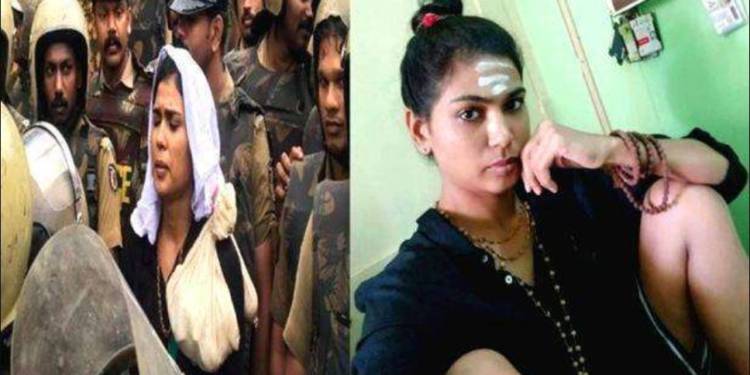Rehana Fathima who shot to fame during her desperate and failed bid to enter the Bhagwan Ayyappa temple at Sabarimala in 2018 has seen her bail plea rejected by the Kerala High Court. She has now moved to the Supreme Court in a bid to gain anticipatory bail. Fathima is in the dock for promoting obscenity after she posted a video of her semi-nude body where her minor children can be seen painting on her bare body.
Fathima who was booked last month under the Information Technology Act and the Juvenile Justice Act based on a complaint by BJP OBC Morcha leader A V Arun Prakash. Fathima posted a video where her minor children can be seen painting her semi-nude body which went viral.
She moved to the Kerala HC for a pre-arrest bail on July 24, however, the Kerala HC has dismissed her application prompting Fathima to move to the Supreme Court. The High Court in its judgement observed that the video amounted to an obscene representation of children for the purposes of sexual gratification, attracting offences under Section 13 of the Protection of Children from Sexual Offences Act (POCSO) and section 67 B of Information Technology (IT) Act.
Fathima argued before the court that there’s a difference between nudity and obscenity and nudity per se cannot be treated as obscenity.
Her petition states that, “The petitioner, while being semi-nude, has allowed her body to be used as a canvas by her children to paint on, and there can probably be nobody except a pervert who would be aroused to sexual desire by seeing the nature of the work”.
It further added that “There has been no indecent or obscene representation of a child in this case – they merely paint in an expressionless manner as children do. It is therefore impossible to conclude that any child was used for sexual gratification.”
However, Justice PV Kunhikrishnan rejected Fathima’s arguments, as he stated that after seeing the video he cannot say that there is no obscenity involved.
In a strongly-worded judgement, the High Court observed that “the petitioner uses the children for the purpose of sexual gratification because the children are represented in the video in an indecent and obscene manner as they are painting on a naked body of their mother”.
The Kerala High Court also observed that it cannot rule out the offence under Section 67B of the IT Act which relates to facilitating abusing of children online.
Fathima who used to work as telecom technician at BSNL shot to fame during after her failed bid to enter the sanctum sanctorum of the Sabarimala shrine.
After an inquiry found her guilty of fomenting enmity between communities by posting objectionable pictures and comments on social media, BSNL sent her on compulsory retirement.
The BSNL order said it was not acceptable that Ms Fathima “was ignorant of the consequences of her actions, as public tension was already mounting up at the point of time due to the movement against women entry in Sabarimala.” Hence, her acts were intentional, The Hindu quoted the order as saying.
For the uninitiated, Rehana Fathima had posted an extremely objectionable photo of hers on Facebook, where she was half-dressed as an Ayyappa devotee, and captioned the photo as ‘Tatvamasi’, in an extremely insulting reference to millions of Ayyappa devotees. Following a complaint, the Pathanamthitta police arrested her and sent her to provisional custody.
